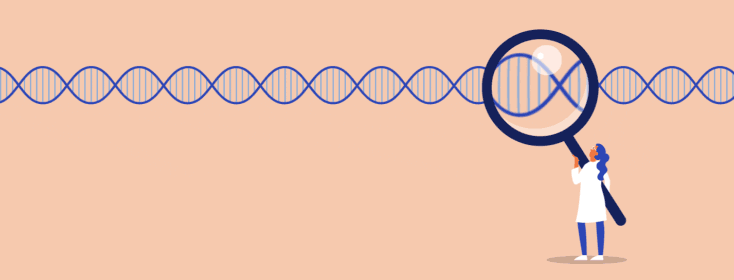Genetic & Genomic Testing: What I Learned
Have you thought about cancer genetic testing, has your doctor mentioned it, or have you even heard of cancer genetic testing? I was one of those who had never heard of genetic testing being used for cancer treatment. Of course, I was familiar with the standard genetic testing that's done to understand the sequencing of human DNA, but cancer genetic testing, what's that?
When my medical oncologist first mentioned having genetic testing done, I have to say I did not fully understand what was being done, the terminology was all new and most of all I had a difficult time understanding how genetic testing was going to help treat my stage IV bladder cancer.
What is genetic counseling?
When I first arrived for my genetic counseling appointment, so many things went through my head. Are they going to have to stick me with needles, how painful is the process, is it an in and out procedure? I know that sounds funny, but honestly, I had no clue.
When the genetic counselor called me to his office, he explained the process and that he was going to ask me questions about my family history, medical history, and about my cancer. The counselor was trying to find some link in my family medical history to cancer. However, there is no medical history of cancer that runs in my family. Needless to say, the process was painless and my education on genetic testing begun.
Did I have Kallmann syndrome?
After talking with the genetic counselor and sharing my family medical history, the genetic counselor started to find some links to Kallmann syndrome. I had never heard of this syndrome and especially once I read about the signs and symptoms it did not sound like me at all.1
After looking at previous blood work and testing my medical oncologist had done in the past. It was decided that I should have an exam by a doctor who specializes in genetic disorders. I was on board with it; I already have bladder cancer how much worse could this Kallmann syndrome be, right?
I had the exam with the genetic doctor, and he determined that I did not have Kallman Syndrome. So now what? What's the next step in the genetic testing process? The next step was to have blood work done that specifically looks for mutations in genes that control cell growth and the repair of DNA.
Genetic testing vs. genomic testing
I guess during this process I received genetic testing and then now the testing was going one step further to what is referred as genomic testing. I have to say through this process I was still not sure how or if genomic testing was going to have any impact on how my cancer would be treated. The doctors did not think the outcome of the genomic testing would have much impact on my cancer treatment as well. This will all change as I progress through my treatment.
What is the FGFR1 gene?
Once the blood work results returned the genetic counselor called me and shared the results with me, the blood work showed that I carry the FGFR1 gene. So what is Fibroblast Growth Factor Receptor (FGFR)? It is a protein in the body involved in cell growth and maintenance that can become abnormally active in cancer cells and help them grow.2
Even at this point, my medical team was still unsure how the genetic and genomic testing results would impact my cancer treatment. Needless to say fast forward to today, and here I am participating in a clinical trial where one of the medications specifically blocks the activity of the FGFR protein.
Thinking ahead
I am so thankful my medical team was thinking ahead with the hopes that genetic and genomic testing would one day have an impact on how my cancer would be and is being treated today. I encourage newly diagnosed bladder cancer and cancer patients to have a talk with their medical oncologist about genetic and genomic testing.
Every day cancer treatments are getting better! There are new therapies, medications and clinical trials becoming available. If your doctor does not suggest cancer genetic or genomic testing, bring it up and ask about it. It never hurts to ask, and have a discussion about it with you doctor.
Editor’s Note: With heavy hearts, we regret to inform readers that on February 27, 2021, Curtis passed away from stage IV bladder cancer. Curtis’s advocacy efforts and writing continue to impact many. He will be deeply missed.

Join the conversation